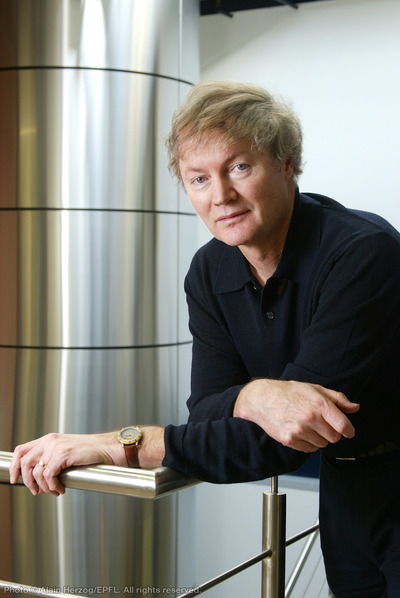Grätzel cell wins renewable energy prize
The inaugural Leigh Ann Conn Prize for Renewable Energy, presented by the University of Louisville (UofL), Kentucky, has been awarded to Swiss chemist Michael Grätzel. The $50,000 prize exists to acknowledge outstanding ideas and achievements in research related to the science, engineering, technology and commercialisation of renewable energy.

Professor Grätzel, director of the Laboratory of Photonics and Interfaces at the Ecole Polytechnique Federale de Lausanne, is recognised for merging nanoscience with photoconversion by developing the dye-sensitised solar cell (DSC), known as the Grätzel cell. The cells convert sunlight into electricity using earth-abundant materials at efficiencies exceeding thin-film silicon-based cells, yet production costs are dramatically lower. Mass production of the cells began in 2009.
Grätzel will next year give a public talk in Louisville about his award-winning work, where he will receive the award from UofL President James Ramsey. Ramsey described Grätzel as “the international leader in making solar energy more efficient, practical and affordable”.
The prize, managed by UofL’s Conn Center for Renewable Energy Research, is named for the late daughter of Hank and Rebecca Conn, who are centre supporters and the prize benefactors. Hank Conn said the choice of Grätzel “mirrors the work conducted at the Conn Center and reinforces everything we’ve strived for these past five years”.
Nominations for the 2014 Leigh Ann Conn Prize competition run from 1 January-1 June 2014. Criteria and directions are at www.conncenter.org/leigh-ann-conn-prize.
Bürkert team to take on sustainability strategies
The fluidics experts at Bürkert have assembled a global, interdisciplinary team that...
ASC certifies NT barramundi farm
Aquaculture Stewardship Council has announced that Humpty Doo Barramundi, based in the Northern...
ARBS 2026 returns to Melbourne in May
Registration has opened for ARBS 2026, an Australian exhibition for the air conditioning,...







